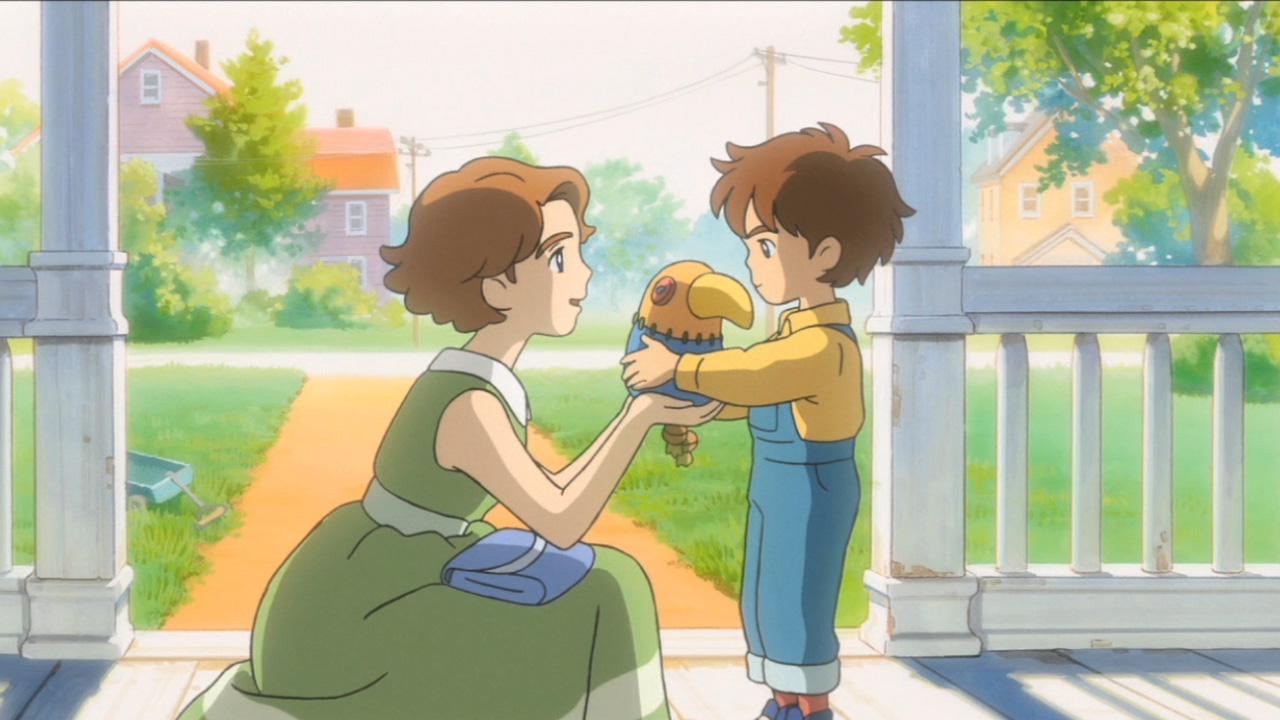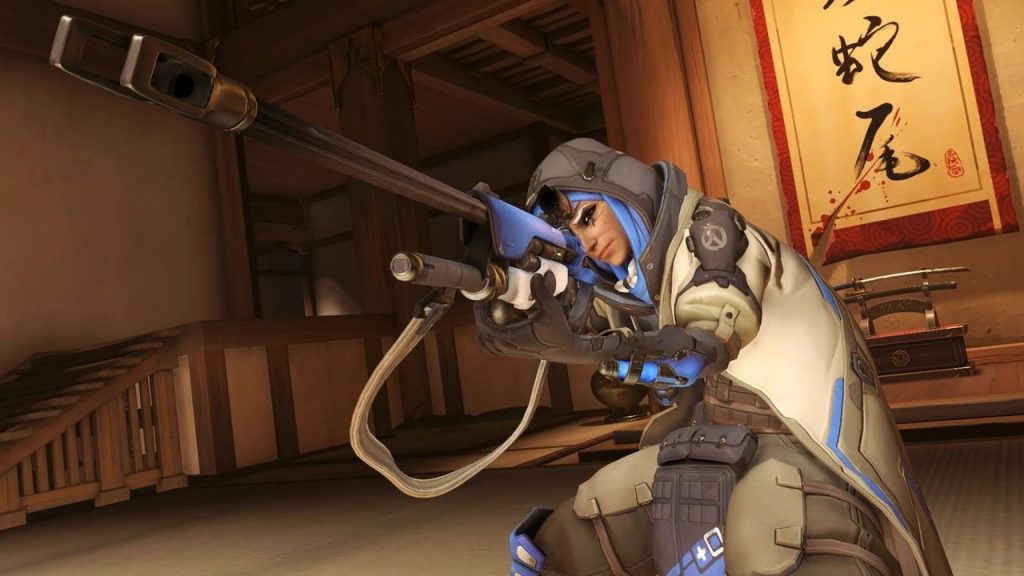It’s time for our annual celebration of moms, aka Mother’s Day. It’s a time to highlight the person who brought us into this world (for better or worse). Everyone has a mother though you still may not celebrate the holiday for whatever reason, and therefore it can be assumed that every video game character has a mother.
Unfortunately, mothers and video games haven’t exactly mixed well throughout the years. A lot of the time, they’re either little more than a background character (Final Fantasy X) or not even present at all (God of War). When they are present, well, more often than not they’re not exactly shown in the best light and likely fall into a number of questionable tropes.
With that said, there are some pretty noteworthy video game moms out there. You may have to look for them, but they’re there. Here are some of our favorites.
Terra Branford (Final Fantasy VI)

No, Terra’s not a traditional “mother,” in the strictest sense; she has no children of her own. When she’s introduced, Terra is little more than a tool of the Gestahlian Empire, due to her magical prowess. Though she eventually breaks free of the Empire’s control, she struggles to find her place in the world. Scared and confused by these powers she possesses, her uncertainty intensifies when she learns of her Esper heritage. Ultimately, and somewhat ironically, it’s the end of the world that helps Terra discover her greatest asset: compassion.
Happening upon a village where all the adults have died, Terra decides to take matters in her own hands and act as the children’s guardian. She gains strength in her role as their protector, their makeshift mother. Despite her proficiency in combat, she truly feels like herself when she’s a protector, not a fighter. In fact, she’s compelled to not join her former party in the fight against Kefka at first, opting to stay and protect her found family. However, she draws on the children’s love for strength and uses their love to try to save the world.
There’s a power in compassion, though unfortunately it’s a trait many video game protagonists don’t have. Terra, though, completely personifies it.
Ana (Overwatch)

It’s tough raising a child when you’re on active duty. Such is the case with Ana, one of the founding members of Overwatch. Despite the fact that she’s an elite soldier, Ana still is a dedicated mother; a role model her daughter Fareeeha (also known as Pharah) strives to emulate. Unfortunately, it’s this admiration that eventually puts a strain on their relationship, as Ana doesn’t want her daughter to follow the path she did. Unfortunately, the two are unable to patch things up before Ana is killed in combat.
Or so everyone thinks.
Ana is very much playable in Overwatch (and very much not a ghost); she faked her death. Eventually, Pharah does learn her mother is alive and, somewhat ironically, their relationship becomes stronger after her death.
Despite constantly putting her life on the line day in and day out, Ana remains committed to her family. Her role as a mother is showcased in her role in-game; while she clearly knows her way around a gun, she’s much better suited to play a supporting role. But that doesn’t make her any less tough. If anything, it makes her more so. She’s willing to do whatever it takes to protect those around her.
Allie (Ni no Kuni: Wrath of the White Witch)

Allie falls into the unfortunate “dead mom” trope, but at least her death underlines just how great of a mother she truly is. Allie is unfortunately offed pretty early in the story. In fact, her death is the plot’s main driving force. Though she dies from a heart condition, it’s after she saves her son after a tragic accident. So while she dies, like so many other mothers in video games, her death is a hero’s death and was a sacrifice to save her son.
Despite her early exit, Allie’s presence still lingers throughout Ni no Kuni. It’s later revealed that she’s so much more than a committed mother. She’s the Great Sage Alicia and actually from the world of Ni no Kuni, which is why she has no soulmate there. She’s another character who embodies compassion, though obviously she isn’t playable, and it’s that compassion that ultimately bests the Dark Djinn Shadar.
Bridgette Tenenbaum (BioShock, BioShock 2)

Mom’s aren’t perfect. Tenenbaum may have been the one who created the Little Sisters, but she grew to care for them to the point where she even began to regret her role in their creation. In an attempt to atone for her misdeeds, she eventually teamed up with Jack (depending on how players treat the Little Sisters, of course) to try to save these poor girls.
If the player does chose to save the Little Sisters, rather than harvest them, she begins to warm up to him and enlists him to help her protect her “daughters.” Helping the Little Sisters ultimately gives them the happy ending Tenenbaum wanted, though she’s still haunted by her earlier actions.
Her devotion to the Little Sisters is so apparent that she returns to Rapture prior to BioShock 2, in an attempt to investigate reports of kidnapping. What makes Tenebaum such a good mother is the fact that she realizes the mistakes she’s made, to put it lightly, and wants to prove herself. Being a parent involves plenty of errors (hopefully none of them involving experimenting on children), but it’s a constant learning experience. She wants to do right and is willing to put her life on the line to do so. She knows she may never be redeemed, but she’ll still do what should be done.
Samara (Mass Effect 2)

Remember how we said moms aren’t perfect? This is another example. Samara has basically dedicated her life to hunting down her daughter, Morinth. That might be a little extreme, depending on who you ask. However, this is because Morinth carries a deadly gene within her, one that kills anyone she chooses to mate with. It’s a mutation Samara’s other two daughters have as well, though they ultimately chose to live a life of seclusion.
In some ways, her children’s mutations are her fault. She mated with a fellow Asari, which greatly increases the chances of offspring becoming Ardat-Yakhshi. That’s not to say what Samara did was wrong, even if she might have known better. Even with their mutation, she doesn’t love her children any less; in fact, it’s because she loves them that she does what she does. She wants to not only protect the world from their (literally) fatal flaw, but she wants to protect them both from themselves and the world.
Freya (God of War)

God of War has a complicated relationship with moms. While Faye is the driving force of the story, she’s dead before the entire game begins. The other mother in God of War, however, has a much more active role. Freya is one of the first allies Kratos and Atreus meet, and she is easily the most powerful, too. She’s also a god, the mother of a certain god that’s after Kratos, and the ex-wife of king god Odin. So yeah, she’s a lot more than the “Witch of the Woods.”
There comes a point where Freya becomes defined by her role as a mother. She’s the one who renders Baldur unable to feel anything, which he spends the rest of his life resenting her for. At the end, when Kratos (spoilers!) kills Baldur, she swears revenge. While Kratos and Atreus will have to deal with a couple of threats, including (but not limited to) Thor, Odin, and a little thing called Ragnarok, they’ll also have to deal with Freya and her powers. Her son may have tried to kill her, but he’s still her son, and now she’s out for blood. Preferably, Spartan blood.
Jenova (Final Fantasy VII)

Jenova’s an actual icon, as in extraterrestrial life form whose DNA was used to create Sephiroth, a fellow icon. We’re not quite sure of Jenova is a “she.” To be honest, she is kind of terrifying. But no figure is more important to whatever the overall lore of Final Fantasy VII than she. She’s also dead and centuries old.
All hail Jenova, the greatest mother of all. We are not worthy.
Who’re some of your favorite video game mothers? Let us know!





